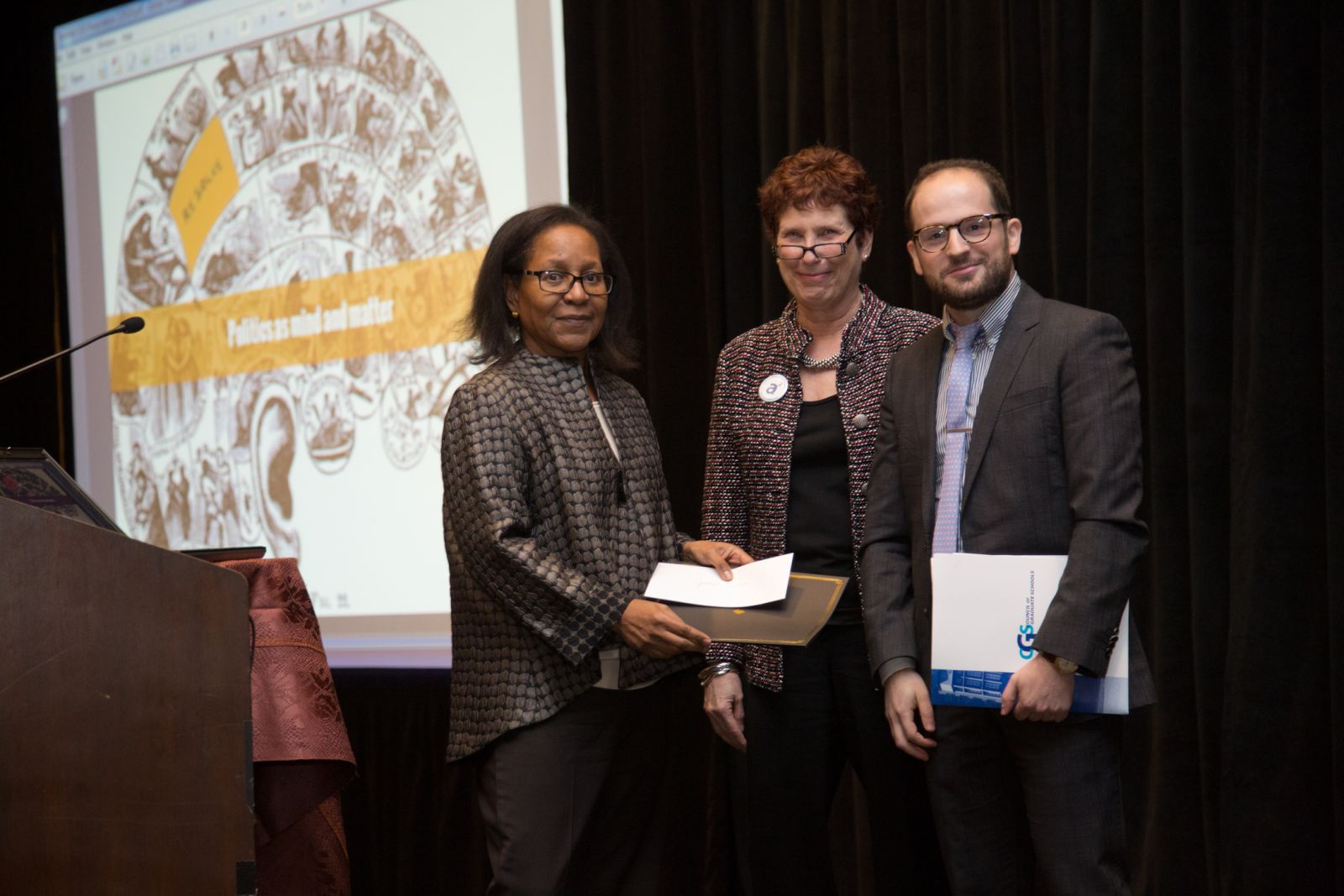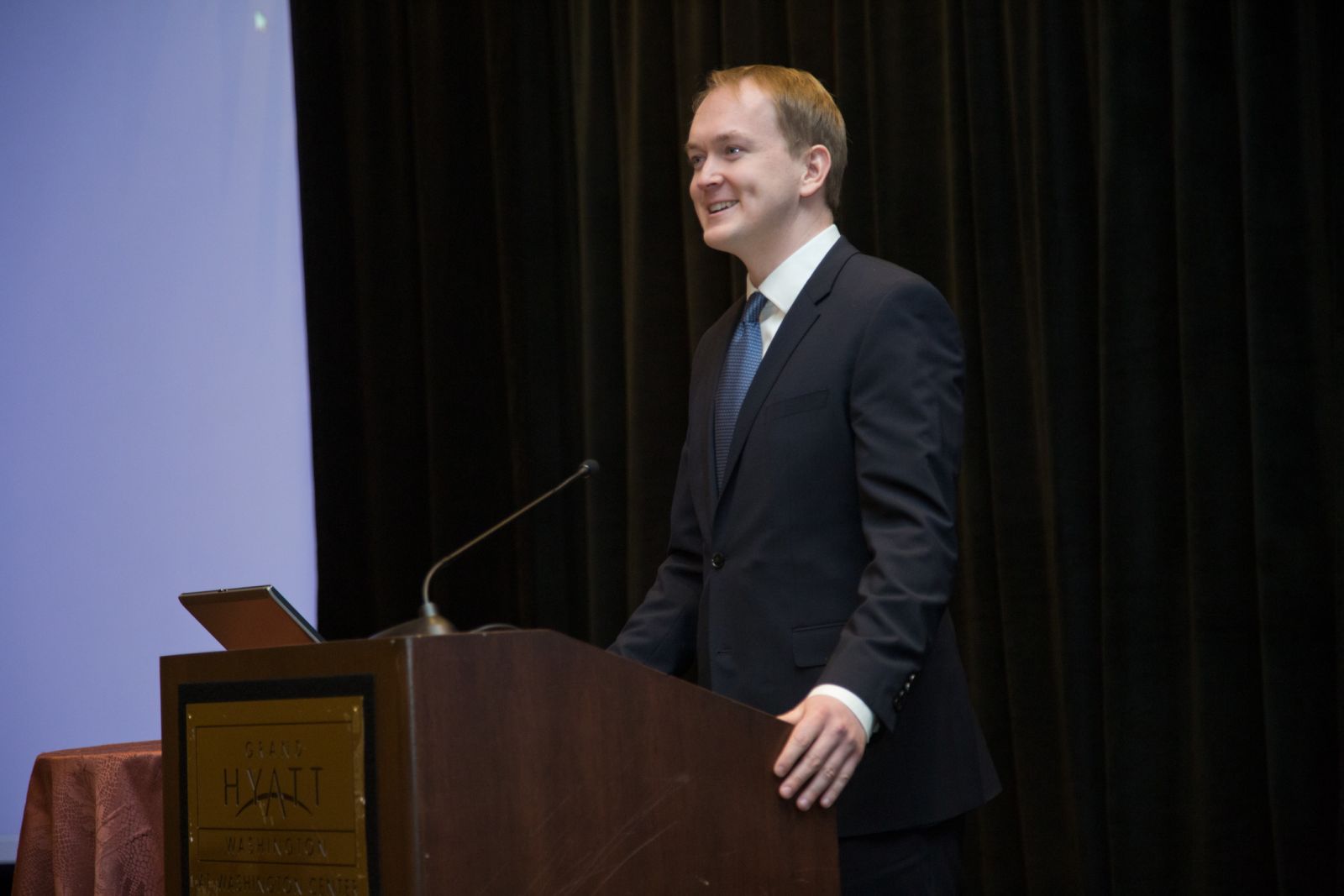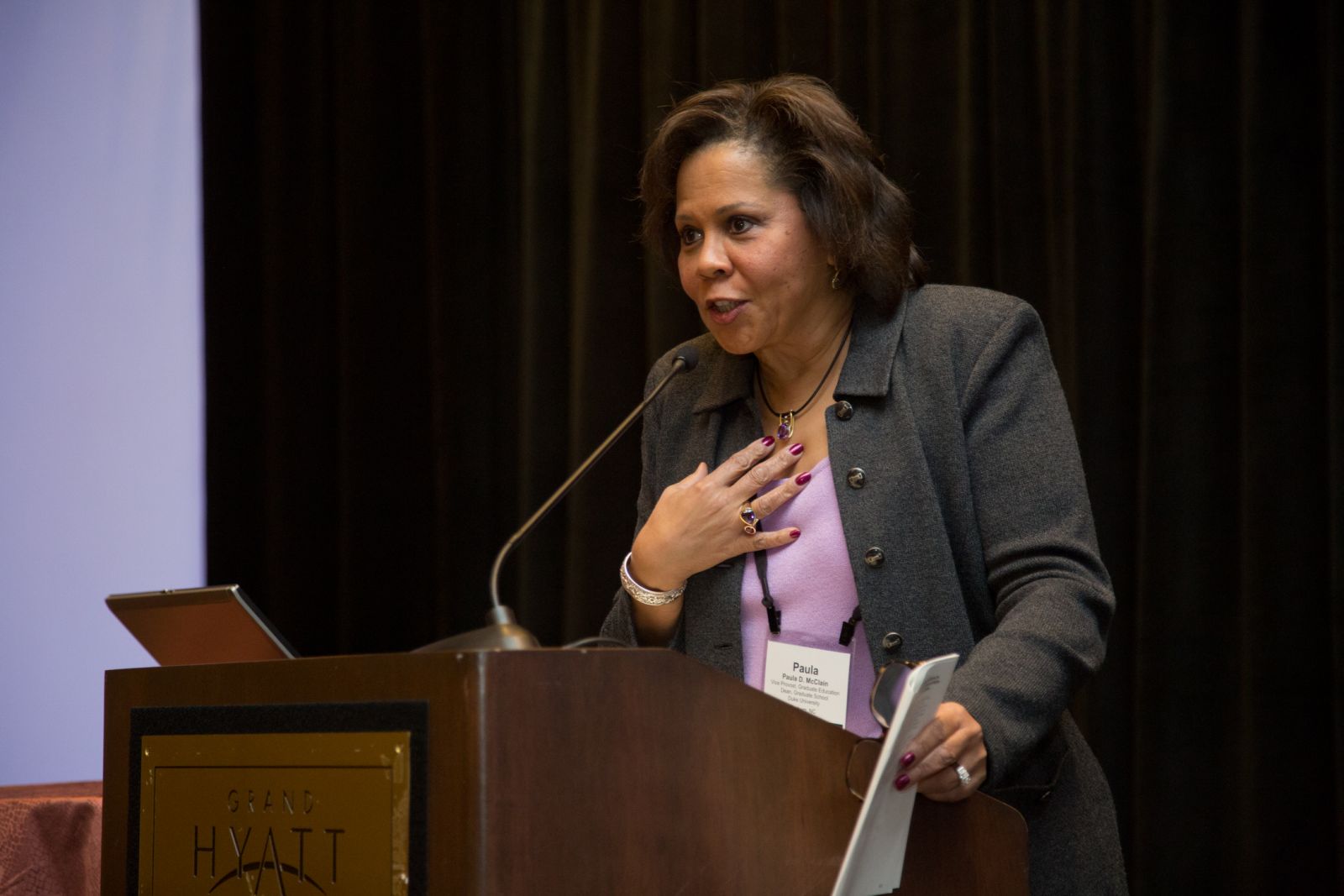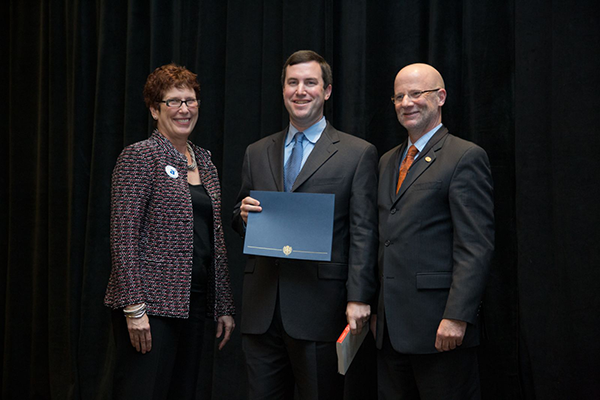You are on CGS' Legacy Site.
Thank you for visiting CGS! You are currently using CGS' legacy site, which is no longer supported. For up-to-date information, including publications purchasing and meeting information, please visit cgsnet.org.
Member Engagement
Member Engagement

CGS membership provides opportunities to engage with an active community of institutions and organizations that support graduate education. We invite you to explore our categories of membership and their distinct benefits, which include data analysis and best practice expertise, discounts on meetings and publications, and opportunities to exchange information and resources with fellow members.
Gustave O. Arlt Award in the Humanities
Fields of Competition
2015: Religious Studies
2016: History
2017: Classical Studies/Archaeology
2018: English and North American Language and Literature
2019: World Language and Literature, Comparative Literature, Drama/Theater Arts
2020: The Arts (Art History/Criticism/Conservation and Music)
2021: Linguistics and Philosophy
Attendees at the CGS 54th Annual Meeting in Washington, DC, enjoyed engaging sessions, terrific speakers and exciting networking. Click on the images below to view this album at our Facebook page.
Contact:
Julia Kent
(202) 223-3791
jkent@cgs.nche.edu
Three New Members to Join Board in 2015
Washington, DC – The Council of Graduate Schools (CGS) Board of Directors has announced its officers for the 2015 term. CGS is governed by a 12-member Board of Directors drawn from member institutions. Board members serve for set terms.
Dr. Barbara Knuth, Vice Provost and Dean of the Graduate School at Cornell University, as the 2015 Board Chair was announced at the conclusion of the 2014 CGS Annual Meeting. Serving in her role at Cornell since 2010, Knuth has enhanced her university’s professional development program for graduate students to focus on supporting students to work effectively with their graduate committees and to foster transferable skills relevant to academic and non-academic career paths. Since she became dean, all graduate degree programs have articulated specific learning outcomes and have implemented assessment plans focused on program improvement. Knuth joined the Cornell faculty in 1986 as an assistant professor of natural resource policy. She holds a bachelor of philosophy degree in interdisciplinary studies, a bachelor’s in zoology, and a master’s in environmental science, all from Miami University, and a PhD in fisheries and wildlife sciences from Virginia Tech.
“In her role as graduate dean, Dr. Knuth has been at the forefront of the pressing issues graduate schools are facing today,” said CGS President Suzanne T. Ortega. “Her expertise and leadership will help CGS chart ambitious goals for meeting the evolving needs of our member institutions.”
The new Chair-elect is Mark J. T. Smith, Dean of the Graduate School at Purdue University. Dr. Smith will serve in this role in 2015 and will become the board chair at the conclusion of the 2015 Annual Meeting. A member of the faculty in Electrical and Computer Engineering, Smith was appointed graduate dean in 2009. His scholarly interests are in the area of digital signal processing. He is a Fellow of the IEEE (Institute of Electrical and Electronics Engineers), and is a former IEEE Distinguished Lecturer. He has authored many technical papers, six international standards publications, three textbooks, and two edited books, the most recent of which is the 2014 edited book GPS for Graduate School—Students Share Their Stories.
Beginning three-year terms on the board on January 1 are Maria Di Stefano, Associate Provost and Dean, Graduate Studies at Truman State University; Janet Rutledge, Vice Provost and Dean of the Graduate School at the University of Maryland, Baltimore County; and Christopher Sindt, Vice Provost, Graduate and Professional Studies at Saint Mary’s University of California.
James Wimbush, Vice President for Diversity, Equity, and Multicultural Affairs and Dean of the University Graduate School at Indiana University, will remain on CGS’s Executive Committee for one year as immediate past chair.
“I am honored to have worked with Dr. Wimbush during his term as CGS Board Chair,” Ortega said. “He has contributed greatly to the success of graduate students at his institution and to the enterprise of graduate education worldwide.”
The Council of Graduate Schools (CGS) is an organization of over 500 institutions of higher education in the United States and Canada engaged in graduate education, research, and the preparation of candidates for advanced degrees. Among U.S. institutions, CGS members award 91% of the doctoral degrees and 81% of the master’s degrees.* The organization’s mission is to improve and advance graduate education, which it accomplishes through advocacy in the federal policy arena, research, and the development and dissemination of best practices.
* Based on data from the 2013 CGS/GRE Survey of Graduate Enrollment and Degrees
Julia Kent, Council of Graduate Schools
(202) 461-3874
Beth Dempsey, ProQuest
(248) 349-7810
Awards recognize outstanding research by graduates in the fields of Political Science and Physics
Washington, DC – The Council of Graduate Schools / ProQuest Distinguished Dissertation Awards, the nation’s most prestigious honors for doctoral dissertations, were presented to Joshua Kertzer and Matthew Reed at an awards ceremony during the Council’s 54th Annual Meeting. Both awardees completed their PhDs in 2013— Dr. Kertzer at The Ohio State University, in Political Science, and Dr. Reed at Yale University, in Physics.
Bestowed annually since 1982, the awards recognize recent doctoral recipients who have already made unusually significant and original contributions to their fields. ProQuest, an international leader in dissertation archiving, discovery and access, sponsors the awards and an independent committee from the Council of Graduate Schools selects the winners. Two awards are given each year, rotating among four general areas of scholarship. The winners receive a certificate, a $2,000 honorarium, and funds for travel to the awards ceremony.
“ProQuest has devoted decades to preserving and building paths to the discovery of dissertations because we believe they play a pivotal role in advancing knowledge,” said Niels Dam, ProQuest Vice-President, Dissertations Product Management. “The dissertations by Dr. Kertzer and Dr. Reed are excellent examples of the fresh perspectives that are explored and the new foundations set in graduate works. They make us proud to sponsor this important award.”
“Once again, the Distinguished Dissertation Awards demonstrate how young scholars are having a dramatic impact on their fields,” said CGS President Suzanne T. Ortega. “It’s a testament to the vitality of graduate education when new knowledge contributed by recently minted PhDs can raise the level of understanding in their fields of study.”
The 2014 Award in the Social Sciences was presented to Dr. Kertzer for his dissertation, “Resolve in International Politics.” The project examines the concept of resolve, one of the most commonly used, but insufficiently understood, independent variables in International Relations. Arguing that resolve is “an interaction between situational stakes and dispositional traits,” Dr. Kertzer uses a range of different methods to “explain why certain types of actors are more sensitive to the costs of fighting, while others are more sensitive to the costs of backing down.” He is currently Assistant Professor in the Department of Government at Harvard University.

[From left: Marlene Coles, ProQuest; Suzanne T. Ortega, CGS; Joshua Kertzer, winner, 2014 ProQuest Distinguished Dissertation Award]
Dr. Reed received the 2014 Award in Mathematics, Physical Sciences and Engineering for his dissertation, “Entanglement and Quantum Error Correction with Superconducting Qubits.” His project “reports on work demonstrating the fundamental capabilities of a quantum computer using superconducting quantum bits.” The most significant result reported on his dissertation is “the first demonstration of quantum error correction in a solid-state device.” Understanding how to correct such errors is an important requirement for building a quantum computer. Dr. Reed is currently Research Scientist at HRL Laboratories.

[Matthew Reed, winner, 2014 ProQuest Distinguished Dissertation Award]
More information about the CGS / ProQuest Distinguished Dissertation Award is available at www.proquest.com/go/scholars or at www.cgsnet.org.
About the Council of Graduate Schools (www.cgsnet.org)
The Council of Graduate Schools (CGS) is an organization of over 500 institutions of higher education in the United States and Canada engaged in graduate education, research, and the preparation of candidates for advanced degrees. Among U.S. institutions, CGS members award 91% of the doctoral degrees and 81% of the master’s degrees.* The organization’s mission is to improve and advance graduate education, which it accomplishes through advocacy in the federal policy arena, research, and the development and dissemination of best practices.
* Based on data from the 2013 CGS/GRE Survey of Graduate Enrollment and Degrees
About ProQuest (www.proquest.com)
ProQuest connects people with vetted, reliable information. Key to serious research, the company’s products are a gateway to the world’s knowledge including dissertations, governmental and cultural archives, news, historical collections and ebooks. ProQuest technologies serve users across the critical points in research, helping them discover, access, share, create and manage information.
The company’s cloud-based technologies offer flexible solutions for librarians, students and researchers through the ProQuest®, Bowker®, Dialog®, ebrary® and EBL® businesses – and notable research tools such as the Summon® discovery service, the ProQuest Flow™ collaboration platform, the Pivot™ research development tool and the Intota™ library services platform. The company is headquartered in Ann Arbor, Michigan, with offices around the world.
Contacts:
Julia Kent, CGS
(202) 461-3874
jkent@cgs.nche.edu
Tom Ewing, ETS
(609) 683-2058
tewing@ets.org
Washington, DC – The sixth annual ETS/CGS Award for Innovation in Promoting Success in Graduate Education: From Admission through Completion was presented to Duke University during the 54th Annual Meeting of the Council of Graduate Schools (CGS). The award is sponsored by CGS and Educational Testing Service (ETS). Dr. Paula McClain, Dean of The Graduate School and Vice Provost for Graduate Education, accepted the award on Duke’s behalf.
The award recognizes promising, innovative proposals to enhance student success and degree completion at the master’s or doctoral level while promoting inclusiveness. The winning institution is selected on the strength of its proposal to meet the award’s goals and to serve as a model for other schools. The winner receives a two-year, $20,000 matching grant.
Duke’s proposal will create Duke OPTIONS (Online Professional Development Tool for Individual OpportuNitieS), a tool that will help doctoral students explore a wide range of careers and create a professional development plan to acquire the skills, experience, credentials, and connections they need while they are in graduate school.
“Our students are telling us that in addition to their advisors, they need more sources of assistance in navigating career options,” Dr. McClain said. “At Duke, we provide many professional development opportunities, and this tool will help students create roadmaps for their career paths and goals and connect them to the right opportunities at the right time.”

[Paula McClain accepts on behalf of Duke University the 2014 ETS/CGS Award for Innovation in Promoting Success in Graduate Education: From Admission through Completion]
The selection committee noted that Duke OPTIONS is worthy of recognition for the way it will empower students to set their own professional development agendas throughout their doctoral studies. Also, because prospective applicants will have access to Duke OPTIONS, the tool will gather data on how professional development opportunities can be used to achieve recruiting and admissions goals. Perhaps most exciting of all is the potential Duke OPTIONS has to reveal the effect of professional development on persistence and degree completion.
Following the two-year funding period, Duke OPTIONS will be sustained as a permanent program thanks to commitments by the Duke administration and the Graduate School.
“The graduate education community benefits tremendously from the practices showcased by this award competition,” said CGS President Suzanne T. Ortega. “On behalf of our members, I thank Duke University for sharing their creative expertise with graduate institutions everywhere. And of course, I thank ETS, whose support makes possible this novel way to promote best practices among the graduate community.”
“Doctoral degrees are taking graduates to all corners of the workforce today,” said David G. Payne, Vice President and COO of ETS’s Higher Education Division. “As graduate schools redefine professional development to better reflect the broad range of careers PhDs are choosing, Duke’s project is well-poised to become a model for other institutions. We are especially excited to see the project’s focus on the full life-cycle of doctoral study, the transparency it adds for prospective applicants, and its potential to improve degree completion—especially among underrepresented minority students. ETS is delighted to support Duke in creating this innovative program for the benefit of doctoral students.”
About ETS
At ETS, we advance quality and equity in education for people worldwide by creating assessments based on rigorous research. ETS serves individuals, educational institutions and government agencies by providing customized solutions for teacher certification, English language learning, and elementary, secondary and post-secondary education, as well as conducting education research, analysis and policy studies. Founded as a nonprofit in 1947, ETS develops, administers and scores more than 50 million tests annually — including the TOEFL® and TOEIC® tests, the GRE® tests and The Praxis Series™ assessments — in more than 180 countries, at over 9,000 locations worldwide. www.ets.org
About CGS
The Council of Graduate Schools (CGS) is an organization of over 500 institutions of higher education in the United States and Canada engaged in graduate education, research, and the preparation of candidates for advanced degrees. Among U.S. institutions, CGS members award 91% of the doctoral degrees and 81% of the master’s degrees.* The organization’s mission is to improve and advance graduate education, which it accomplishes through advocacy in the federal policy arena, research, and the development and dissemination of best practices.
* Based on data from the 2013 CGS/GRE Survey of Graduate Enrollment and Degrees
Contact:
Julia Kent
(202) 223-3791
Washington, DC – The Council of Graduate Schools (CGS) has awarded the 2014 Gustave O. Arlt Award in the Humanities to Dr. Michael Titelbaum, Associate Professor of Philosophy at University of Wisconsin-Madison. The awards ceremony was held during the CGS 54th Annual Meeting.
The Arlt Award is given annually to a young scholar-teacher who has written a book deemed to have made an outstanding contribution to scholarship in the humanities. Dr. Titelbaum becomes the award’s 44th recipient for his book, Quitting Certainties (Oxford University Press, 2013). He received his PhD in Philosophy from University of California-Berkeley in 2008.
Dr. Titelbaum’s book presents a new approach for tackling a fundamental problem of epistemology. As a philosopher carefully rationalizes what s/he knows, it becomes necessary to accept that things can be ‘known’ with varying degrees of certainty. And over time, as new evidence is discovered and considered, the philosopher can update the degree of certainty with which they know what they know. The current standard theory of how individuals should change their degrees of belief over time (Subjective Bayesianism) has a few holes: it can’t account for situations where individuals have forgotten information; or in which the degree of certainty was based on self-locating claims. In the book, Titelbaum introduces his Certainty-Loss Framework as a way to reinterpret Bayesian methodology and alter the theory’s updating rules.

[From left: Suzanne T. Ortega, CGS President; Michael Titelbaum, winner, 2014 Arlt Award; John McCarthy, Vice Provost and Dean of the Graduate School at University of Massachusetts Amherst and member of the 2014 Arlt Award Selection Committee.]
Quitting Certainties was selected to receive the Arlt Award based on the impact the book has seen since its publication. Nominators praised Titelbaum for the way his Certainty-Loss Framework is making possible a deeper examination of commitment, consistency, and the nature of information.
Created in 1971, the Arlt Award honors the first president of CGS. The winner must have earned a doctorate within the past seven years from, and currently be teaching at, a North American university. Nominations are made by CGS member institutions and are reviewed by a panel of scholars in the field of competition, which rotates annually among seven disciplines within the humanities. This year’s field was Linguistics and Philosophy. The winner receives a $1,000 honorarium, a certificate, and travel to the awards ceremony.
The Council of Graduate Schools (CGS) is an organization of over 500 institutions of higher education in the United States and Canada engaged in graduate education, research, and the preparation of candidates for advanced degrees. Among U.S. institutions, CGS members award 91% of the doctoral degrees and 81% of the master’s degrees.* The organization’s mission is to improve and advance graduate education, which it accomplishes through advocacy in the federal policy arena, research, and the development and dissemination of best practices.
* Based on data from the 2013 CGS/GRE Survey of Graduate Enrollment and Degrees
Attendees of the Council of Graduate Schools (CGS) 2014 Annual Meeting were repeatedly exhorted to press for more legislative support for graduate institutions. Speakers issued a call to action for greater advocacy as state-by-state divestment in higher education shows little sign of reversing.
Science magazine spoke with University of California System President Janet Napolitano following her presentation at the 2014 CGS Annual Meeting to delve deeper into how graduate leaders can make the case for graduate schools in an environment of declining state support and competing federal funding priorities.
Janet Napolitano, University of California System President, and other speakers at the Council of Graduate Schools 54th Annual Meeting provided a call-to-action for greater advocacy of graduate education issues.
Following her presentation at the CGS Annual Meeting in Washington, DC, December 4, University of California System President Janet Napolitano was heading to Capitol Hill to advocate for the importance of graduate education. More administrators need to do the same, she said, imploring those in attendance to move beyond the comfort of the “echo chamber” and the “coalition of the willing" to a wider audience of policy makers and the general public.




